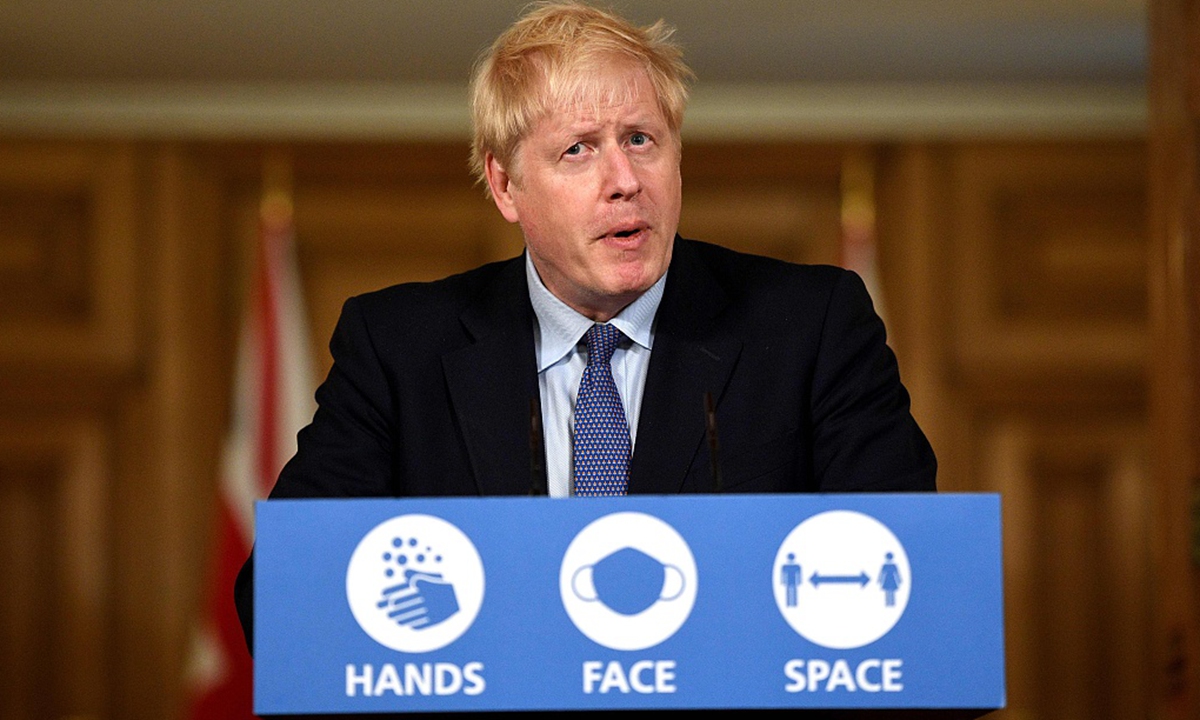
British Prime Minister Boris Johnson. Photo: VCG
British Prime Minister Boris Johnson on Monday defended his decision to impose a new lockdown on England, the second of its kind since the start of the COVID-19 pandemic in the country, saying that Britain could face a "medical and moral disaster" if nothing changes.
In a statement to the House of Commons (lower house of parliament), Johnson said there was "no alternative" but to impose national restrictions in the face of the grave situation.
"Faced with these latest figures, there is no alternative but to take further action at a national level," he told MPs.
Another 18,950 people in Britain have tested positive for COVID-19, bringing the total number of coronavirus cases in the country to 1,053,864, according to official figures released Monday.
The coronavirus-related deaths in Britain rose by 136 to 46,853, the data showed.
The prime minister warned of an "existential threat" to the National Health Service (NHS), adding that Britain could face a "medical and moral disaster".
"Doctors and nurses could be forced to choose which patients to treat, who would live and who would die", he said.
"If we fail to get coronavirus under control, it is the sheer weight of demand from COVID patients that would deprive others of the care they need. Cancer treatment, heart surgery, other life-saving procedures, all this could be put at risk if we do not get the virus under control," he said.
Meanwhile, Johnson rejected accusations that Britain had been too slow to act, adding that he had to "try every possible option" before imposing a nationwide lockdown.
Johnson announced Saturday that England will enter a month-long lockdown from Thursday in a bid to quell the resurgence of the coronavirus.
Under the new measures, which will be effective until Dec. 2, people in England will only be allowed to leave their homes for specific reasons, such as education, work or food shopping.
Pubs, bars and restaurants will close across the country except for takeaways. Non-essential shops, hairdressers and leisure and entertainment venues will also be shut. But unlike in the first lockdown, schools, colleges and universities will remain open.
To bring life back to normal, countries, such as Britain, China, Russia and the United States, are racing against time to develop coronavirus vaccines.
